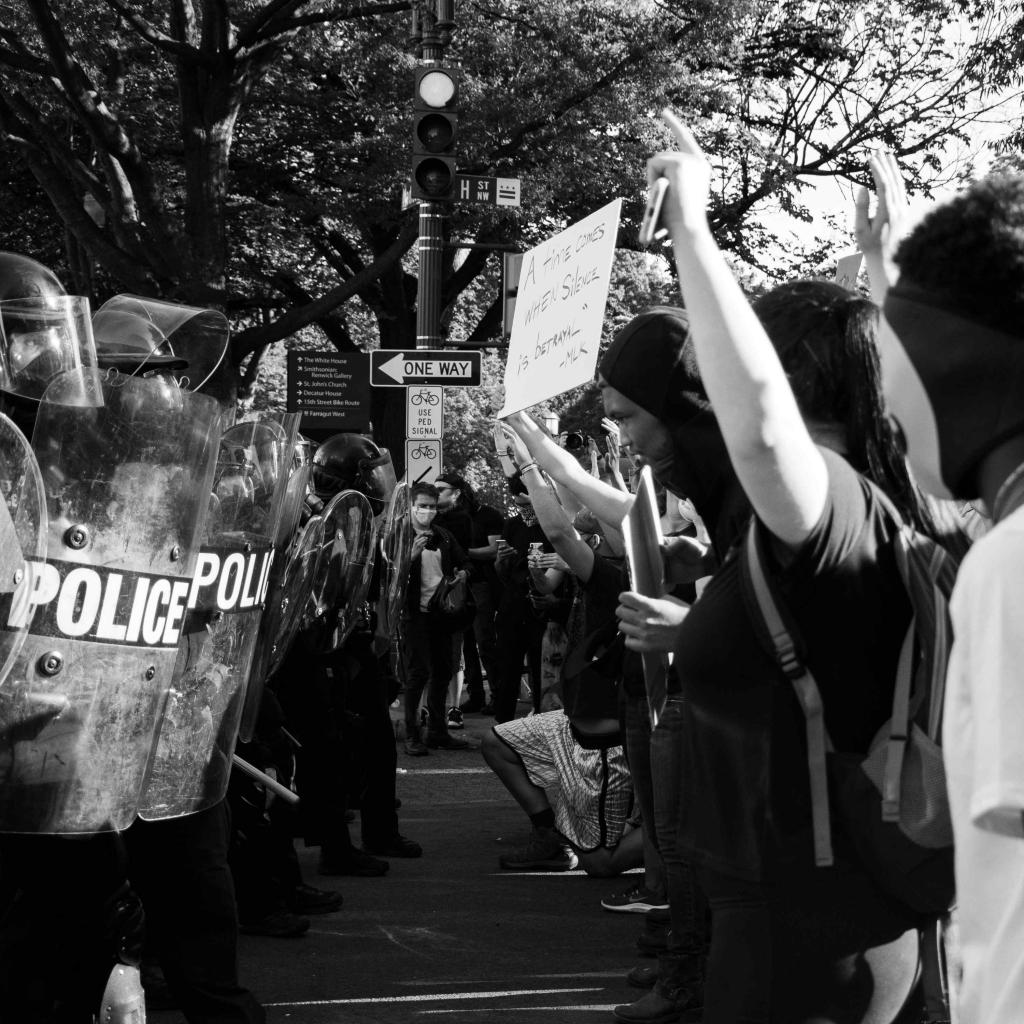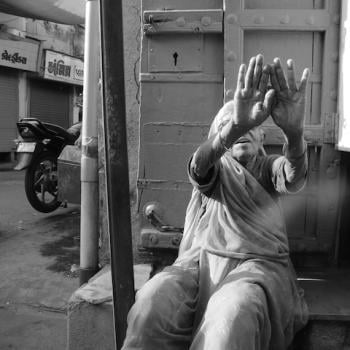
Shadow Work Is Not Just Personal—It’s Collective
As a Shadow Work Coach, I often remind clients that the “shadow” isn’t only a personal construct—it’s communal. Carl Jung called this the collective shadow: the unconscious, denied aspects of our culture a group projects onto groups, identities, or movements. These shadows shape our politics, our religion, and our relationships—often without our awareness–and are manifesting in our collective struggle against fascism.
When we don’t reckon with how we’ve personally ingested our collective shadow, we become vulnerable to ideologies that offer simplistic answers to complex problems. This is exactly what we’re seeing in real time in Los Angeles, and broadly in today’s social and political climate: a resurgence of fascism fueled by collective repression and denial.
The One-Sided God: Christianity and the Roots of Suppression
In my previous article, I explored how Western Christianity has played a central role in shaping this collective shadow—particularly through its overemphasis on “light.” I quote David Steindl-Rast wrote:
“In its enthusiasm for the divine light, Christian theology has not always done justice to the divine darkness.”
This theological imbalance—exalting purity, perfection, and transcendence—leaves no room for the messier, wounded, more ambiguous parts of the human soul. That which doesn’t align with the ideal of perpetual and enthusiastic light, is cast out of peripheral vision. But darkness doesn’t disappear; it festers in the unconscious. And eventually, we project onto others.
Historically, Christianity’s collective shadow has been cast onto Black and Brown bodies, queer and trans people, overwhelmingly poor people, women, mystics, heretics—anyone who reflected back a repressed aspect or energy in which the collective refused to integrate. That shadow continues to operate in the collective American psyche, often dressed in political language.
Fascism: The Political Face of the Repressed Shadow
Fascism thrives wherever shadow is denied. It offers identity through opposition: you belong because you are not them. Fascism seduces with certainty, purity, and control. It idolizes sameness and demonizes difference. Underneath this is a deep fear—not just of the “other,” but of the unacknowledged parts of the self.
This is why shadow work is not a luxury—it’s a form of resistance. A society unwilling to integrate its complexity will seek to eliminate it. That’s what fascism does: it tries to externalize and eradicate the inner conflict we refuse to face.
But there’s another way.
Shadow Work as a Liberatory Practice
Shadow work guides us toward wholeness, not moral or political perfection. It looks like integration, and diversity. Liberatory shadow work is holding complexity without collapse. Wholeness is not purity. It is inclusion.
When we confront and face our shadows, we then have the agency to cease projecting them. We begin to reclaiming parts of ourselves we believed were unworthy—our bodies, our feelings, our contradictions. And in doing so, we disarm the systems that rely on our self-rejection.
If you’re a marginalized person and part of a scapegoated community, you carry a sacred piece of the collective shadow. There’s nothing more you need to do except live you’re life authentically and trust something much larger and more powerful than the United States Government is holding you. Your life is a protest, and living it is an act non-violent resistance.
And if you are someone who benefits from systems of dominance—because of your race, gender, sexuality, class, or ability—your invitation is also toward authenticity. Not performative allyship or perfection, but deep, embodied inner work. It means reclaiming the parts of you that learned to shrink your humanity in exchange for belonging or dominance. It means releasing the false self power systems reward, and stepping into a fuller, riskier, more honest life. Not from guilt—but from love. From a soulful place where your liberation is connected to everyone else’s.
Reimagining the Divine
Part of this journey involves reimagining the divine itself. If your image of God has been shaped by purity, punishment, or perfectionism, your soul may be starving for a fuller, truer encounter with the sacred. Not a sanitized deity of eternal light, but a divine presence willing to accompany you into the shadow.
Ask yourself:
-
Is my God-image one-sided?
-
Does it leave room for grief, rage, desire, and paradox?
-
Does it honor my full humanity—or only the parts deemed “good”?
This is the spiritual work of our time: to create and embody an image of the divine spacious enough for our whole self.
Moving Forward: From Shadow to Wholeness
We are living in a moment where authoritarianism and spiritual bypass are rising in tandem. But we are also in a moment where more and more people are waking up to the cost of disconnection.
Shadow work helps us reclaim our personal and collective identity. It invites us into wholeness: the kind of wholeness that can hold contradiction, difference, and mystery without trying to resolve or erase it.
















